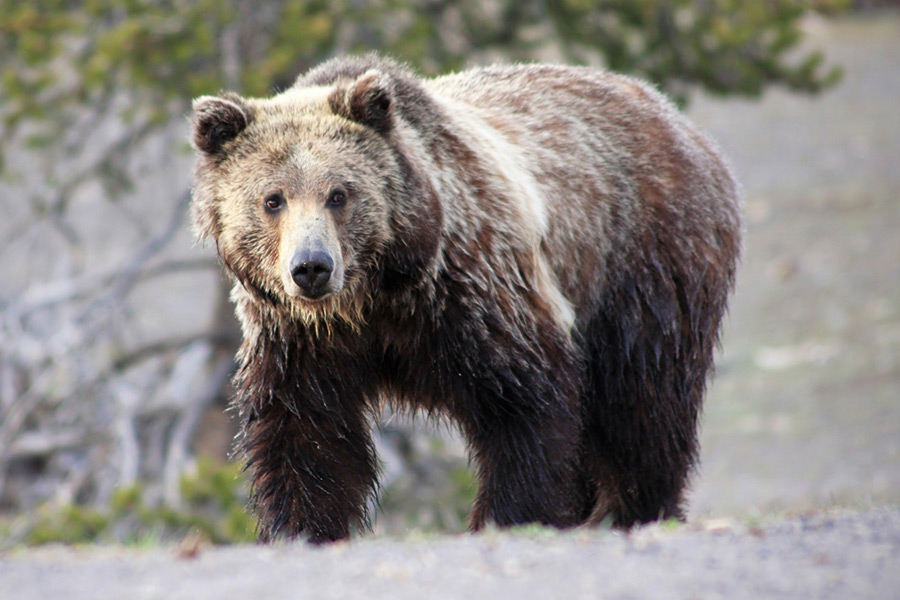HELENA — Montana wildlife regulators set the rules Wednesday for how hunters will be able to kill grizzly bears in the future if the U.S. government decides to remove federal protections for grizzlies in and around Yellowstone National Park.
Wildlife advocates are concerned that the Yellowstone bear population is still too vulnerable to warrant any hunting of the animals, but state officials say the rules are very conservative and designed to ensure the bear population will not be threatened.
“Montana is committed to maintaining a healthy, viable grizzly bear population in our state, just as we do with all wildlife we are charged with managing,” said John Vore, the game management bureau chief for Montana Fish, Wildlife and Parks.
The U.S. Fish and Wildlife Service in March proposed lifting protections for the more than 700 grizzlies around Yellowstone National Park. Grizzly bears in other areas of the Lower 48 states, including the bear populations in northwestern Montana, would remain protected under the Endangered Species Act.
The bears have been considered a threatened species since 1975, but federal wildlife officials say that population has sufficiently recovered to turn over management to Wyoming, Montana and Idaho. Before the Fish and Wildlife Service makes a final decision on grizzly protections by March 2017, it is requiring the three states to outline what their grizzly hunting seasons would look like.
The three states have signed off on an agreement to jointly manage grizzly bears to ensure their population numbers don’t drop too much because of overhunting. The agreement includes holding an annual review of the Yellowstone bear population that would determine the total number of bears that could be killed by hunting that year, and allocate quotas to each state. If the total population drops below 600 bears, no hunting would be allowed, under the agreement.
Montana’s quota is expected to be less than 10 bears per year in most years, Fish, Wildlife and Parks officials said.
Hunters in Montana would be allowed to kill only one bear in their lifetime, and a hunter who draws a license in the annual lottery would have to wait seven years before receiving another.
The new rules create seven separate grizzly hunting regions so that there is no overhunting in one particular area, and they bar killing a bear that is with another bear to protect females and cubs. They also set two seasons, one in early spring and the other in late fall, to protect females with cubs, which tend to go to their dens earlier in the fall and emerge later in the spring than males.
Hunting licenses would cost Montana residents $150 and non-residents $1,000, and hunters would be required to take a training course.
If a hunter kills a bear, he or she would have to report it within 12 hours, under the new rules.
Wyoming has approved less-detailed hunting regulations that include a prohibition on killing female grizzlies with cubs and a requirement that hunters report a kill within 24 hours. Idaho’s proposed regulations are out for public comment and must be approved by the state Legislature
About 380 people commented on Montana’s hunting rules and the management plan, with the great majority being against them. Many of those who were opposed spoke against the Fish and Wildlife Service lifting the bears’ designation as a threatened species.
Chris Colligan, the wildlife program coordinator for the Greater Yellowstone Coalition, said he believes the level of detail in the hunting regulations is premature and goes beyond what is required by the Fish and Wildlife Service. He also is concerned that the plan will prevent the isolated Yellowstone grizzly population from connecting with bear populations north of the park, he said.
“Our hope is to have a connected population where the bears are moving between the two ecosystems,” Colligan said.
